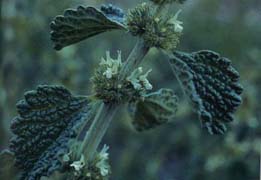User Login |
Wording for sign Compost is a wonderful thing!
By buying a compost bin or making your own, you can make a real impact on the amount of waste your household generates!
What is Composting?
Composting is the entirely natural process by which nature returns the valuable nutrients
contained in dead plant material back to the soil. By composting at home you can
harness this process for your benefit. Instead of throwing your kitchen and garden waste
away, you are able to use it to produce a valuable soil-improver.
Why Should I Compost?
Composting at home reduces the amount of waste sent to landfill sites. Kitchen and
garden wastes are known as organic wastes. Up to 40% of the average household
dustbin is organic wastes and therefore suitable for composting.
Making your own compost saves you money by reducing the need to buy soil improvers
and mulches. Instead of sending your garden waste to
the dump you could be making your own compost at home. Applying home produced compost
to the soil in your garden helps it to conserve moisture and requires less watering.
Composting at home helps you AND Your environment.
What can be composted?
The majority of your kitchen and garden waste is suitable for composting, however there are
some things that you should avoid:
YES
Fruit & vegetable peelings, teabags, eggshells, dead plants, grass clippings, hedge
trimmings, woody prunings, rabbit & guinea pig bedding, newspaper & cardboard.
NO
Cooked food, meat, fish, bones, dairy products, dog or cat feces, bread, glossy, colored
paper or cardboard.
Summer Composting
Summer provides the warmer temperatures which drive the Composting Process. However,
there are a few points to bear in mind:
Grass Clippings: Composting grass alone can produce a soggy mess. Tear a newspaper
into strips and add, as a layer, before putting grass into your compost bin. After a couple of
days mix it all up.
Fruit Flies: The tiny white flies that appear around the top of the Compost Bin. They are
quite harmless and feed on exposed fruit & vegetable waste. Each time they appear, just
sprinkle soil or cover with newspaper to cover the bin contents and they will disappear.
Air: The creatures that compost our waste need oxygen, just like us. During Spring and
Summer, they are more active and need a steady supply. To keep them happy, agitate the
compost bin contents with a pitchfork every couple of weeks, to provide air channels.
Moisture: If your bin contents do not appear to be composting, you may have added too
many dry materials such as paper or twigs. Keep your compost bin as most as a wrung out sponge.
Happy Composting!
Sherry Kirk
categories [ Compost | Habitat/Theme ]
login or register to post comments | printer friendly version
|
